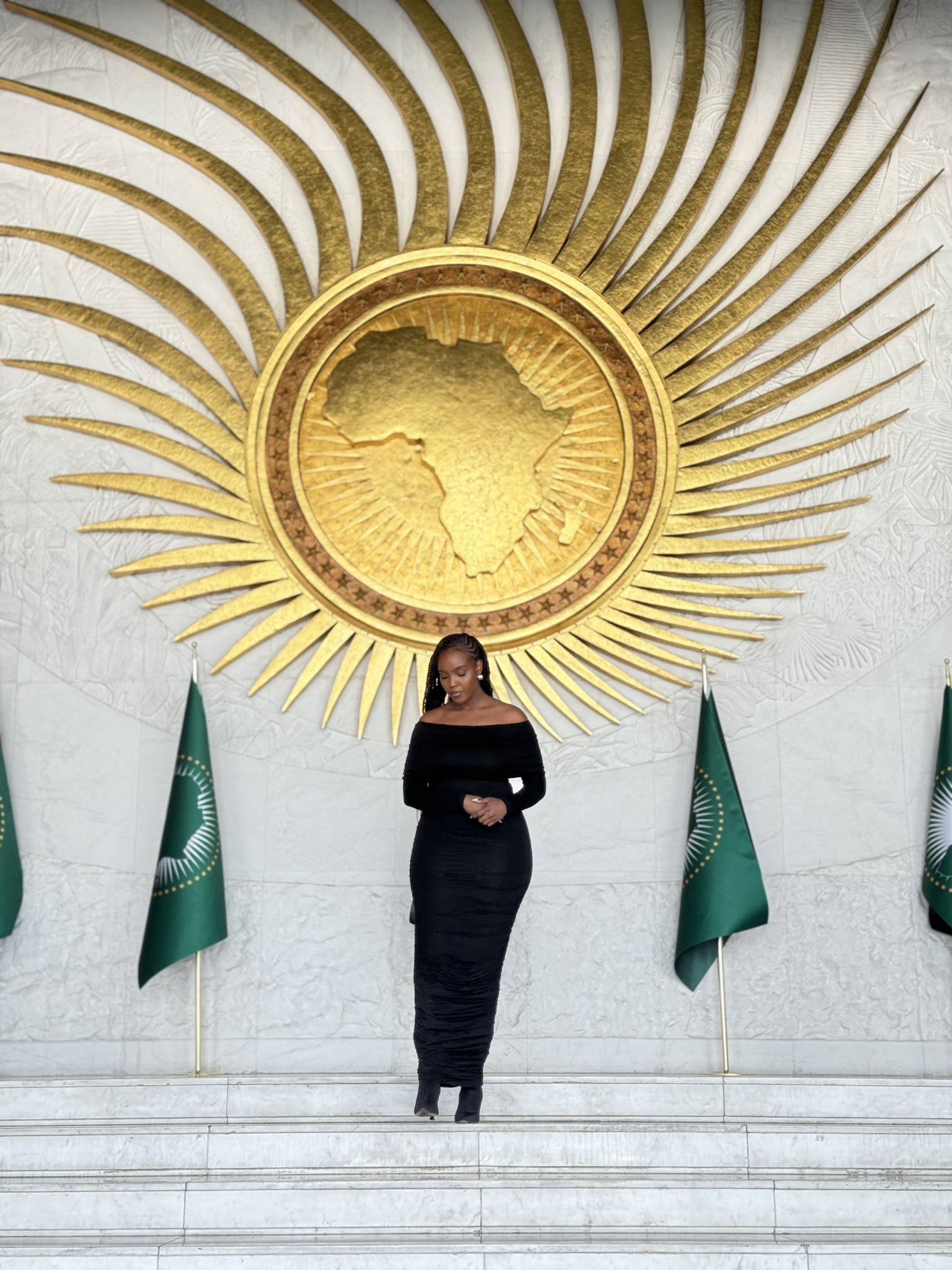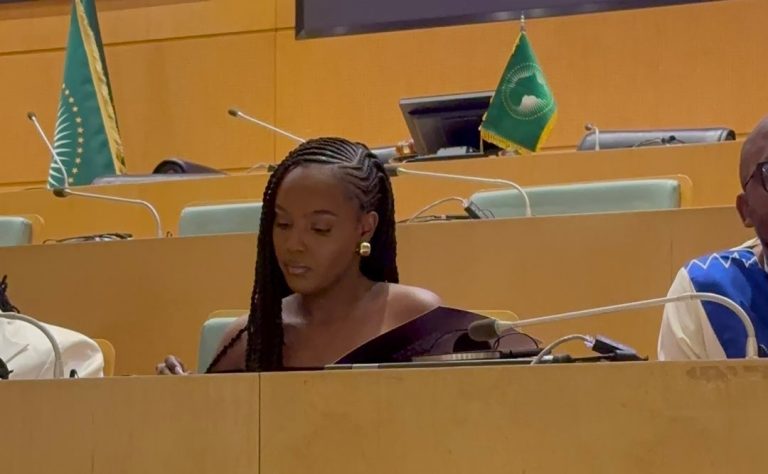Through her LinkedIn page, Kering revealed that she was representing Kenyan artists at the creative economy conference and explained that she was able to push the interests of Kenyan artists.
The four-time Afrimma award winner explained that one of the main interests of artists that she pushed was to demand better remuneration for Kenyan artists from Collective Management Organizations (CMOs) and digital platforms for streaming works of art.
She highlighted how CMOs and digital streaming platforms, responsible for collecting and distributing royalties, have failed to provide fair compensation to the works of art, leaving many artists financially struggling.
“Today, I’m honored to be representing Kenyan artists at the African Union Headquarters in Addis Ababa. We’re shining a light on the issue of low payouts from CMOs and digital platforms,”Kering’ revealed.

Nikita Kering also revealed that she is at the forefront of pushing the African Union to increase efforts in finding appropriate methods to protect the copyrights of its artists, as the time has come for African art to be given the respect it deserves.
“We are calling on the AU to help strengthen the protection of intellectual property for artists across Africa. African creativity is powerful, and it’s time it received the recognition, protection, and support it truly deserves,” she added.
He comments on unfair compensation of royalties comes in the backdrop of increasing frustration of Kenyans artistes in the way the royalties are collected and distributed to them by relevant bodies like the Music Copyright Society of Kenya (MCSK) and Performers Rights Society of Kenya (PRISK).
Over the years, Kenyan artists have raised concerns about their royalty payments and the way MCSK distributes them. Some artists have described the royalties they receive as “peanuts” or have claimed that only a certain group of artists is benefiting.
There have also been allegations of mismanagement of royalties and dividends.
However, the MCSK has remained adamant, responding to the criticisms, stating that the allegations are baseless and that they are committed to fairly distributing royalties to all members.
BY moses sagwe


